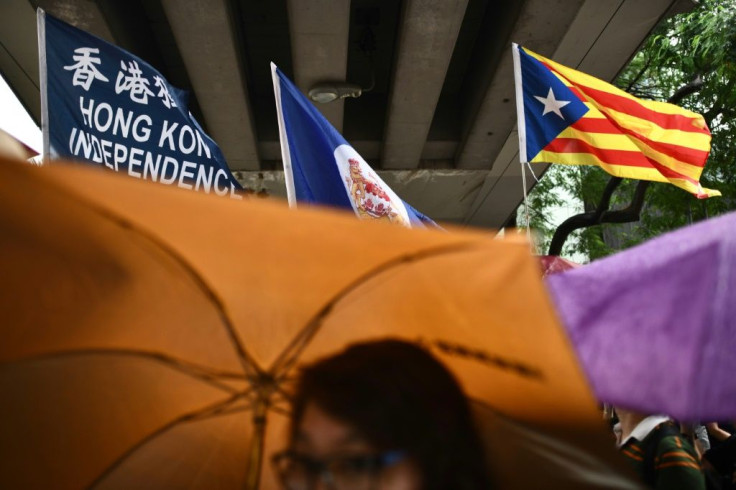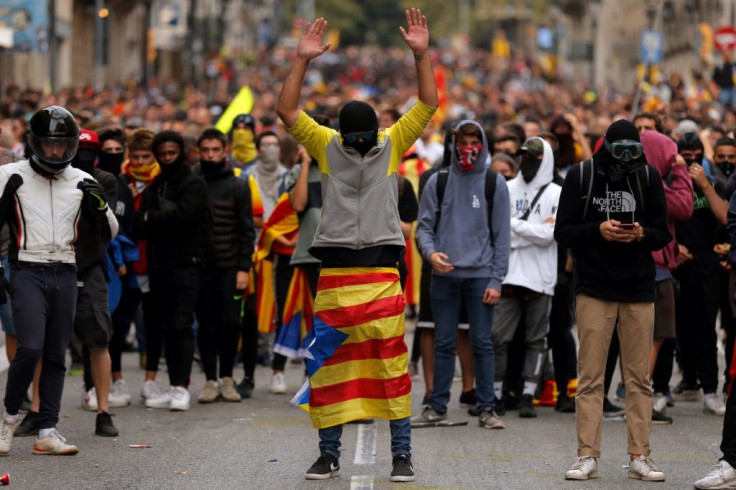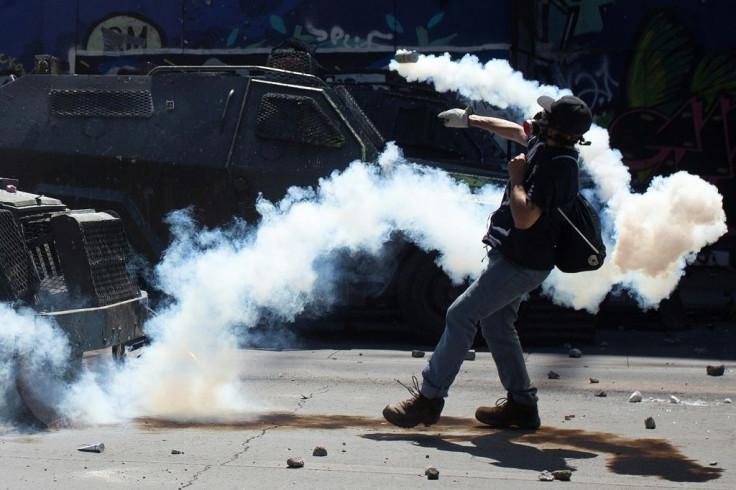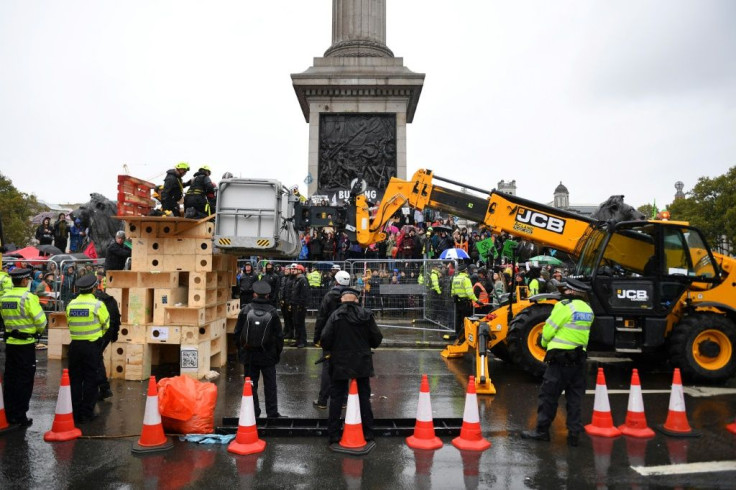Unrest In Catalonia Fuels China's Accusations Of Western 'Hypocrisy'

China is seizing on violent protests in Europe and South America to bolster its condemnation of pro-democracy demonstrations in Hong Kong and defend its handling of the unrest.
Recent clashes in Chile and Spain's Catalonia region have added fuel to China's claims that Western governments and media have hypocritically supported Hong Kong's protests even while condemning violence at home.
Chinese state media and officials have been weighing in on the unrest abroad in recent days.
"We see violence today in Hong Kong being reproduced in other places," Chinese Foreign Minister Wang Yi told AFP on Monday, citing the clashes in Catalonia and Chile, as well as protests in London.
"In Catalonia they publicly declare that a second Hong Kong will be created in Catalonia and that they are inspired by what's happening (in Hong Kong). I think some people must think about their actions," he said.
China has decried "terrorist-like" actions by a violent minority among protesters in Hong Kong and accused foreign governments of fomenting unrest in the semi-autonomous southern city.

Hong Kong's police force has faced accusations of committing abuses during nearly five months of increasingly violent protests in the financial hub.
The movement, which was originally focused on opposition to a now-scrapped extradition bill that would have allowed residents of the city to face trial in the Communist-ruled mainland, has now expanded to include broader demands for democracy and investigations into police violence.
"In recent months we've seen both Beijing and Chinese state media coming out very strongly against the protesters, painting them as villains in the unfolding drama," said Adam Ni, a China researcher at Macquarie University.

Beijing is using the situation in Catalonia as evidence that "only with a strong central government, strong law enforcement, can we stay afloat above this sea of chaos", Ni said.
"It's basically saying, look, what we're doing is not that different from what's happening overseas including in liberal democracies," Ni said. "But, of course, the context is very different."
'Western hypocrisy'
Many in Catalonia who took to the streets after Spanish courts sentenced separatist leaders to lengthy jail terms over a 2017 independence bid have cited the demonstrations in Hong Kong as a source of inspiration.

Tactics popularised in Hong Kong -- such as the use of yellow hardhats and using boarding passes to bypass airport security checks -- have been met in Barcelona with tear gas and rubber bullets fired by Spanish police.
In Chile, more than a dozen people have died in violent protests and looting that started because of a metro fare hike but turned into anger against the military and President Sebastian Pinera.
The arrest of protesters in London from environmental pressure group Extinction Rebellion have also been held up in Chinese state media as an example of Western double standards.
"Exposing Western 'hypocrisy' has been a common tactic of Chinese state media reporting for quite some time, especially when it comes to security and human rights," Maria Repnikova, a professor at Georgia State University, told AFP.
In using this tactic, state media is "also indirectly legitimising a harsher approach to Hong Kong", said Repnikova, who researches political communication.
Chinese foreign ministry spokeswoman Hua Chunying said on Monday that Western governments' responses to demonstrators in Catalonia and London showed that "so-called democracy and human rights are only a sanctimonious pretext for the West to meddle in Hong Kong's affairs".
'Exporting revolution'
The foreign ministry's remarks have been echoed by commentaries and reports in state-run media drawing parallels between events in Hong Kong and elsewhere.
The nationalist tabloid Global Times said in an editorial on Sunday that "Hong Kong demonstrators are exporting revolution to the world in an unexpected way".
"The West is paying the price for supporting riots in Hong Kong, which has quickly kindled violence in other parts of the world and foreboded the political risks that the West can't manage," the Global Times wrote.
The state-run China Daily argued: "Western media and politicians have a double standard when it comes to the same violence committed by protesters in different countries."
"Violence by protesters in Western countries is unrest or rioting, but it is a demonstration or protests, even 'a noble fight for freedom' when it takes places in Hong Kong," the newspaper wrote in an editorial Wednesday.
"Such a double standard betrays the hypocrisy of Western politicians and media."
© Copyright AFP {{Year}}. All rights reserved.





















